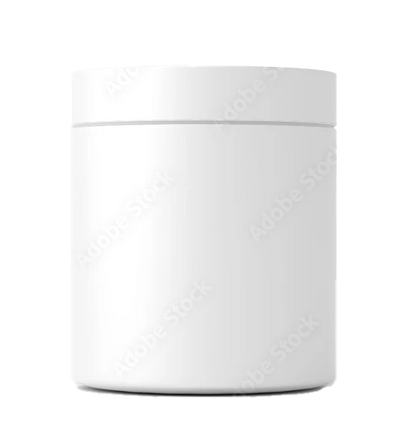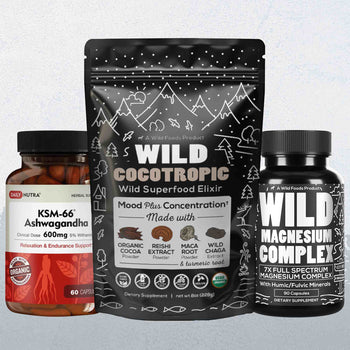What is Bacopa Monnieri?
Originating in India and Bangladesh, bacopa monnieri has been used in Ayurvedic and Chinese medicine for thousands of years.
Bacopa monnieri is a perennial aquatic herb known as Brahmi, Indian Water Hyssop, or Water Hyssop. The plant grows in wet environments, especially near bodies of water, and is native to many parts of Asia, including India and Thailand. Bacopa is distinguishable by its leaves, which have a toothed edge and a hairy underside. The flowers are small and white. Bacopa monnieri can be cultivated in either a garden or a pot indoors. It grows best in moist soil and likes plenty of sunlight.
Traditionally, the leaves of the plant have been used to treat many conditions, including indigestion, insomnia, and anxiety.
Research has shown that bacopa may benefit brain function, leading to its use as a nootropic supplement. Bacopa is a member of the Scrophulariaceae family of plants.
Bacopa monnieri works by increasing levels of serotonin in the brain. This is believed to be responsible for many of the benefits of bacopa, particularly its anti-anxiety effects. Bacopa also works on levels of acetylcholine in the brain, which is believed to improve memory. Finally, bacopa also has anti-inflammatory properties that may provide other health benefits.
Bacopa Research
According to the University of Maryland Medical Center, research suggests that Bacopa may have various benefits for brain function. The herb appears to improve memory and reduce stress. It may also help with depression and anxiety. Bacopa is frequently used as a nootropic or cognitive enhancing supplement.
Bacopa monnieri extract enhances new object recognition, cell proliferation, neuroblast differentiation, brain-derived neurotrophic factors, and the phosphorylation of CAMP response element-binding proteins.
Bacopa monniera (BESEB CDRI-08)-standardized extract mitigates context-associative learning deficits induced in aged rats by D-galactose. Animal studies with either the whole plant or an extract in alcohol reported cognitive enhancement effects, including improved motor learning and acquisition, consolidation, and memory retention in rats.
Alcoholic extracts from bacopa showed memory-enhancing effects in three double-blind, randomized, placebo-controlled studies. Several studies suggest that bacopa can aid memory retention and improve cognitive functions.
Bacopa contains potent plant chemicals called saponins, which scientists believe may have memory-enhancing effects.
Numerous animal studies also suggest Bacopa is an effective scavenger of free radicals in the brain, which may help prevent cognitive decline in older adults. An earlier report also reviewed previously published studies of Bacopa on cognitive function, finding some evidence suggesting the herbal extract can enhance memory performance on free-recall tests.
Lemon Balm
Lemon balm, also known as melissa or bee balm, is a perennial herb with a strong lemony scent and flavor. Its leaves, flowers, and stems are all edible, and the plant is commonly used to add a lemon-like aroma to dishes. It’s also used in herbal teas.
Lemon balm has many bodily benefits, including aiding sleep, reducing stress and anxiety, and easing headaches and sore throats. It is also believed to have anti-inflammatory properties. It has been used for centuries as a flavoring agent, ointment, and topical medication.
What's in Lemon Balm?
Lemon balm is high in polyphenols and can be used as a source of antioxidants in the diet. It is also used as a carminative, sedative, and antihypertensive agent.
Anti-inflammatory: Lemon balm contains rosmarinic acid, which has been shown to have anti-inflammatory properties.
Antiseptic: Lemon balm contains high levels of thymol, an antiseptic that can prevent bacterial growth.
Digestive Aid: Lemon balm has carminative properties and can be used as a digestive aid to reduce bloating and cramping.
Mood enhancer: Lemon balm contains several essential oils that have been found to have mood-boosting properties, including citral and limonene.
Sore throat soother: Lemon balm can be a natural remedy to help soothe a sore throat.
Memory improver: According to a study published in Phytotherapy Research, lemon balm can help improve your memory by increasing blood flow to the brain. This increased blood flow may help to increase the production of neurotransmitters responsible for memory formation.
Rhodiola Rosea
Rhodiola is a perennial flowering plant native to cold regions of the Northern Hemisphere, including Asia and Europe. Traditionally, it has been used as a medicinal herb in Eastern European and Scandinavian countries.
Rhodiola is mainly known for increasing energy, boosting mood, and reducing fatigue. Rhodiola is a Rosaceae (rose) family member and is related to other important medicinal plants such as the rose and the geranium. Two main species of rhodiola that are used medicinally: Rhodiola rosea and Rhodiola crenulata.
Here are just a few of the fantastic benefits of rhodiola:
Rhodiola: is an adaptogenic herb that helps the body stay balanced under different types of stress. This makes it a great tool to support health during mental or physical stress, including during times of physical exercise.
Rhodiola: has been shown to have antioxidant, anti-inflammatory, and neuroprotective effects. This may help to address a wide range of health issues.
Rhodiola: is an excellent pick-me-up for fatigue. It also helps reduce anxiety, which can often accompany low energy levels.
Rhodiola: may help with cognition and mood as well. It has been shown to improve concentration and may even reduce feelings of anxiety or depression.
Rhodiola: also has excellent potential as an anti-aging herb. It may help improve skin health, promote hair growth, and even help lower cholesterol.
Rosemary Extract
Also known as “red gold” due to its red leaves and aromatic fragrance, rosemary is a perennial herb that belongs to the mint family. Native to the Mediterranean and Asia, rosemary is also cultivated across the world, including in India, Pakistan, Australia, and Brazil. Rosemary leaves tend to be more potent during the winter months.
Rosemary is known to contain antioxidants, such as rosmarinic acid, camphene, and beta-carotene. These compounds have been shown to have anti-inflammatory and antioxidant properties.
What does rosemary do?
There are many benefits of rosemary-infused products and supplements. Some include:
Anti-inflammatory: Rosemary has been found to have anti-inflammatory properties that can help improve joint and muscle pain caused by arthritis, sprains, and strains.
Antioxidant: As mentioned above, rosemary contains antioxidants associated with improved brain function, reduced risk of certain cancers, and reduced risk of diabetes.
Digestive health: Rosemary has been found to improve the function of enzymes in the stomach that aid digestion. This can help reduce stomach pain and bloating that some people experience after eating beans.
Metabolism: A few studies have shown that rosemary extracts can increase metabolism, which can help reduce body fat and promote weight loss.
Saffron Extract
Saffron extract appears to decrease depression-like feelings in healthy individuals experiencing subclinical mood disorders, adding to the growing body of literature showing the consistent benefits of saffron for treating depression across clinical and nonclinical populations.
The saffron extract appears to ameliorate subclinical symptoms of depression in healthy individuals and could promote increased resilience to stress-related mental disorders. In a study on mice, the saffron extract reduced anxiety-like behaviors and increased time spent sleeping. Saffron supplementation improved anxiety symptoms in a study in 60 patients over 12 weeks [41 ].
A study of 28 healthy men showed that ten days of saffron supplementation increased muscular strength and reaction times. In a study of 38 women, saffron supplementation increased sexual desire and decreased sex-related pain for four weeks. Saffron extract supplemented for 16 weeks improved cognition and reduced dementia in a study of 46 patients with Alzheimer's disease.
In another study conducted over eight weeks, taking saffron extract supplements helped to significantly decrease appetite, body mass index (BMI), waist circumference, and total fat mass (3). Participants receiving a 30 mg dose of standardized saffron extract reported lower depression scores and improved social relationships at the end of this study.






































